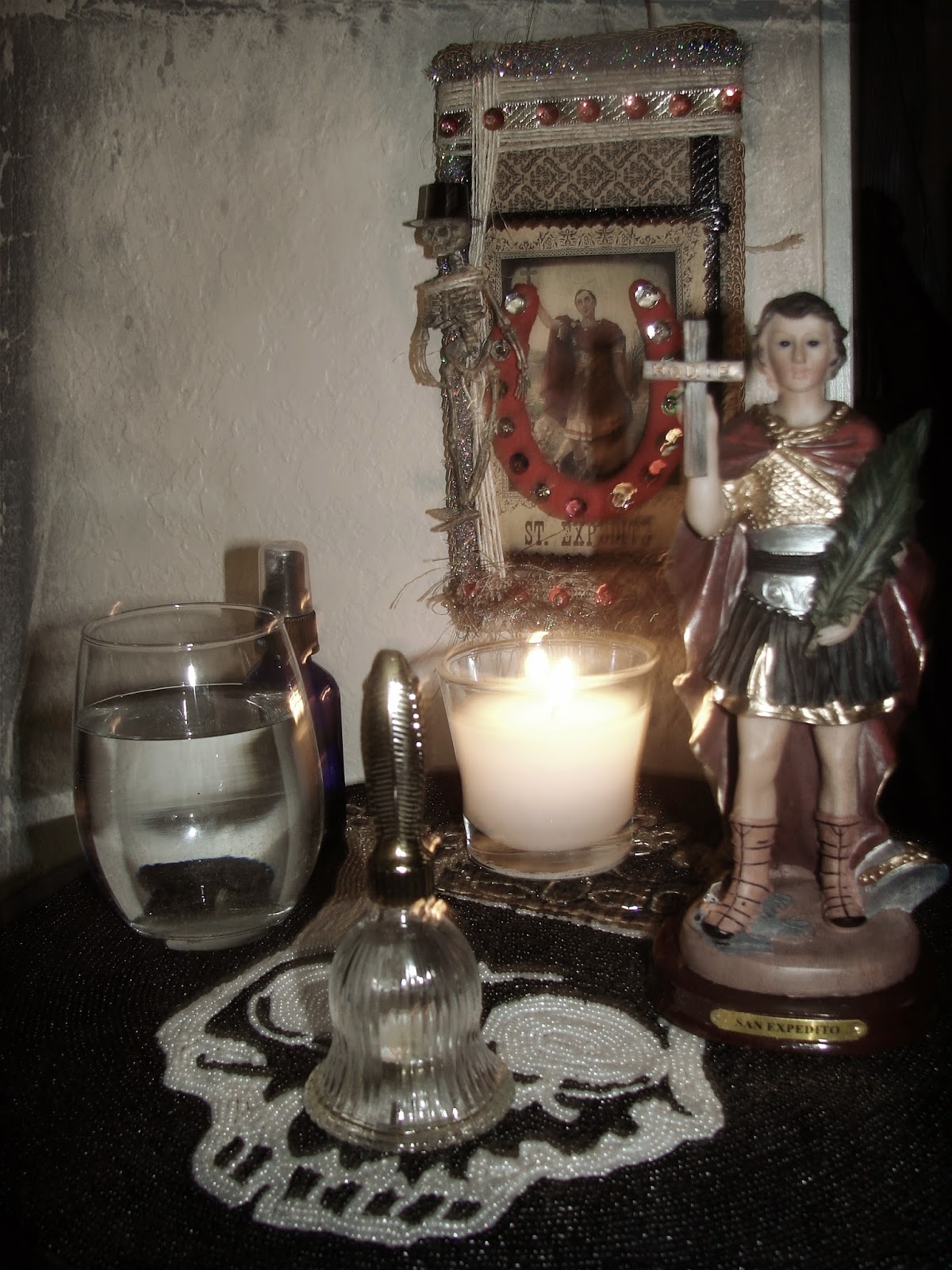In my last article I posted a diagram of how St. Expedite's altar should be set up. I thought I would post some photos of his altar in action so you can see how you apply the information from the graphic to the actual set up of his altar.
Note that because I am not a kumbaya worker, I like to think of myself as a realist, I have him set up on a beaded mat of a skull representing the Guede, and then I have hanging on the wall behind the altar a talisman I made with Baron Samedi with a fixed horseshoe and another image of St. Expedite, as well. This is because of his association with Baron Samedi in New Orleans Voudou. I also have a blue spray bottle of thunder water and hail that I collected during a monsoon this summer. St. Expedite was a leader of the Roman Thundering Legion where a miracle happened on the battlefield. Here is an excerpt from the book that describes what happened:
St. Expedite was the commander of the XII Roman Thundering Legion, who held its neighborhoods in the city of Melitene, capital of the Roman province of Armenia. He had 6821 Armenian Christian soldiers under his command. The name Thundering Legion came from an act of miraculous weapons. It was during the reign and in the presence of Marcus Aurelius himself. The Roman army, engaged in the arduous campaign of Germany, had become entrenched in a fortified settlement of Quades in northeastern Hungary; but, surprised by the barbarians (Germans), had left circle. It was summer and there was a drought. Dying of thirst, the Roman soldiers no longer had the strength to fight; their morale was declining rapidly. The Roman army was about to be destroyed entirely.
Appealing to the magical omens that inevitably accompanied the troops in the field, and which predicted the good or bad end of a campaign, Marcus Aurelius ordered public prayers and offerings to the gods. While the rest of the army engaged in pagan invocations and practices, the Thundering Legion left the camp, knelt on the fields and prayed fervently to their Christian God. Seeing over 6000 soldiers kneeling, arms outstretched, the enemy took advantage and attacked.
At the same time their prayers were completed, the soldiers engaged the Germans. At that moment, a torrential rainstorm complete with thunder, lightning and hail began to fall. The soldiers collected in their helmets this water of Divine Providence and drank to regain their strength. Lightning riddled the ranks of the barbarians who fled under a rain of hail as big as stones while Christians were unaffected. It is in commemoration of this miracle that Marcus Aurelius gave the XII Roman Legion the name Thundering Legion.
For this reason, thunder water and hail is sacred to St. Expedite, and if you ever have a chance to collect hail as it falls - and don't mind your neighbors looking at you like you are bat shit cray cray - then collect it and bottle it like I did. You can use it to bless your altar, home and yourself. I use it to wipe down his statue to keep it from getting dusty too. I also keep a few bottles in the refrigerator to spritz my face when I am feeling in need...it is awesome stuff.
Thoughts Questions? Comments? You know what to do!



